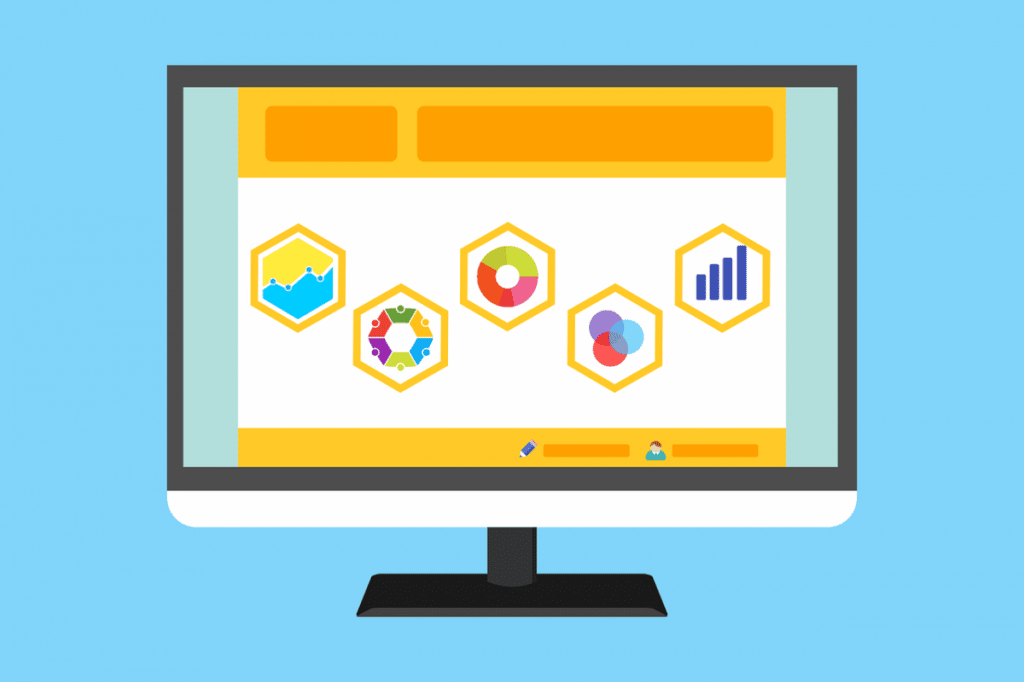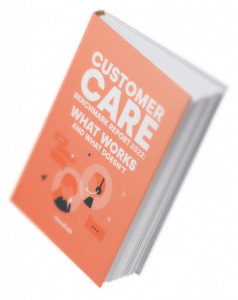3 Types of CRM systems & which one is the right for you

Without customers, there is no business. And without satisfied customers, there is no revenue. Customer relationship management (CRM) became an essential part of success. If you still hesitate, trust numbers: around 50 % of researched sales team members agreed that CRM systems significantly boosted their productivity. Are you unsure which one to choose? Our summary is here to help.
What is CRM software?
To put it simply, a CRM is a tool that manages customer relationships through the entire sales funnel. It helps you to boost customer satisfaction by collecting, processing and analyzing data from various communication channels, keeping them all in one place. It allows you to dive deeper into how customers interact with your business. In most cases, a CRM is an application or a software.
How can you use it in practice? Briefly, by getting a complex picture of your customers’ profile and behaviour, you are able to come up with a strategy that offers a great customer experience. You can build up better customer service, keep track of your sales, close more deals and maintain stronger cooperation between your internal teams or lead management.
Whether you’re looking for your first CRM or you want to switch to something better, we will help you to find the right one.
Types of CRM software
There are 3 types of CRM systems. Now, we will lead you through all of their specifications and functions.
#1 Operational CRM
As the name suggests, an operational CRM system helps companies with managing their everyday operations. This is the most common and very popular type of CRM. Businesses use operational CRM to automate their marketing or sales operations. That includes, for example, launching email campaigns or turning prospects into customers.
A good call center software can remind you of missed or abandoned calls and even dial the number automatically for you – that’s also part of operational CRM. This type of CRM system helps to solve repetitive tasks and increase efficiency.
How to use an operational CRM in practice:
- Marketing automation
Incorporating operational automation into your marketing strategy can take a pressure off your marketing team’s shoulders and leave them more space for creativity. For example, by setting automatic posting on social media or gaining useful personal information in exchange for gated content.
Practical example: In Tom’s company, business went quite well. Yet, his marketing team needed a more effective way to generate leads. Automating a process of collecting information by generating quality downloadable content seemed like a good idea for everyone. The company may gain new customers and potential customers receive useful information about the business they are considering.
Therefore, Tom hired content specialists to work on white papers, videos, ebooks and case studies which leads could download or subscribe to in an exchange for providing an address, e-mail, name, working position and more. Also, offering a product demos proved itself as a good strategy.
- Sales automation
Operational automation may significantly boost productivity of a sales team by decreasing a necessity to do “manual” tasks and increasing space for improving sales campaigns. For example, e-mailing. Though e-mails are 40 times more effective for selling than social media, sales people spend on average 21 % of their day sending them.
Thanks to operational CRM, you can set automatic personalized emails launching, tailored to specific target groups. Personalized emails have around 14 % higher click-through rates then generic ones and personalized subject lines get 26% more opens.
Practical example: Monica used to spend a significant amount of time on sending emails. Though her results were promising, with email automation, she had more time to focus on crafting perfect content and managing follow-up emails. That significantly boosted her sales success, since sending follow-up within one hour may increase your sales chances by as much as 700 %.
Find your ideal CRM

- Service automation
Using operational automation in customer service can help with the efficiency of your overall response time and customer satisfaction. Your customers will be naturally more satisfied if their issue is resolved as fast and effectively as possible.
Practical example: John is a Customer Care Representative who has the strongest expertise in resolving security issues. Yet sometimes, he gets calls from customers whose questions would be resolved faster by his other colleagues. Thanks to Automated Call Distribution (ACD), his company can make sure that callers are always redirected to the most qualified agent or group.
#2 Analytical CRM
Analytical CRM is all about data. Therefore, it is an ideal solution for companies that want to analyze large datasets. Analytical CRM systems allow you to collect, track and analyze important customer details.
This type of CRM software can help you to boost customer satisfaction. The more data you gather on consumer behavior and preferences, the better you know how to adjust your marketing and sales strategies, which fulfills the needs of your target group.
#3 Collaborative CRM
The third type of CRM helps you to boost customer experience by improving communication between the target group and your company, as well as between individual team members.
With a collaborative CRM, customer information is available to all relevant agents or departments at any moment. If you, for example, operate a call center and a new call comes in, your agents will know all essential customer data even before picking up the call.
Different types of CRM systems have different benefits and disadvantages. Before you choose a system, you should consider the priorities of your business and look at your long-term goals. It is important to make sure that you select the best option.
How to choose the right CRM for your business?
Nowadays, there are a lot of quality CMS tools on the market and as mentioned, the choice highly depends on what your business aims for. Let’s take a look at various possibilities:
Your business needs to automate marketing and sales:
If your salespeople spend a significant amount of time on data entry or you feel that your leads are slipping away, because your business lacks a structured way of communication, an Operational type of CRM may be just what your business needs.
A very good CRM system for this purpose is Act!, an ideal choice for small to medium businesses. This tool boosts the workflow of your sales team, which makes turning leads into customers significantly easier.
SalesMate is a good fit for not only small and medium businesses, but also for startups and Enterprises. It helps you to offer your customers an unique, personalized experience. SalesMate manages your contacts, keeps track of sales activities and automates email or text campaigns.
You are seeking a solution for close department collaboration:
Does your business struggle because of insufficient cooperation between various teams? That’s understandable. Individualism rarely helps to achieve goals. To change leads into satisfied customers, you need strong cooperation and fast access to data for everyone. And let’s face it, everything around us moves so fast that “mouth-to-ears” communication is not a productive solution.
Collaborative CRM systems can share the valuable inputs within your teams in no time, keeping everyone immediately informed about all important data.
You can try an “all-in-one” type of CRM system, such as Salesboom. It unifies various departments, for example marketing, sales and customer service, into one platform. From there, everyone can take what they currently need.
Another solution that may be of your interest is a Creatio CRM system. Though it’s a business automation tool, this all-in-one tool helps boosting productivity of your marketing, sales and customer service team
You want to analyzing your customer:
Do you feel like you lack more information about your target group? Analytics is important for each business. To sell, you first need to know your customers’ behaviour. What they want, what they like, what doesn’t work that well for them. To find out, you need an Analytical type of CRM.
If you want a practical combination of usability and flexibility, try Copper cloud-based CRM system. It creates an interface of analytics, productivity features and collaboration, which enhances the productivity of your marketing and sales strategies.
Another good choice may be a Pipedrive. It’s packed with insights and reports for the sales team to analyze. It features visual reports of business performance, sales pipeline metrics, business performance reports and many more. Pipedrive makes it easy to organize your business leads and gives you an excellent overview of your sales activities and deals to focus on.
You wish to build a long-term relationship with customers:
This point is closely related to the previous one, since the best journey to build a long-term customer relationship is through the Analytics type of CRM. By following the ways they interact with your business, you can tailor personalized campaigns and services to each type of your target group.
A well known CRM solution that collects all kinds of insightful data is HubSpot. Its simplicity, flexibility and user-friendly interface makes it a perfect choice even for those who are new to the CRM world. It is also a free platform and supports numerous integrations, such as Hubspot to Looker Studio, Google Sheets, Gmail, and many more
Another tool you can check is Salesforce, a platform good for businesses of all shapes and sizes. It automatically analyzes all your data, automates actions and generates predictive analytics. Salesforce provides real-time customer insights and activity in the form of dashboards and reports, all in one space. It also has an ability to be connected with thousands of business apps.
Are you getting closer to your decision?
Which CRM systems integrate with CloudTalk.




















